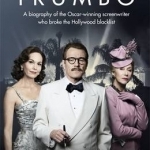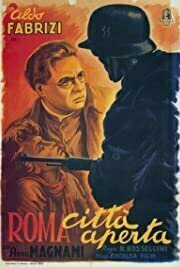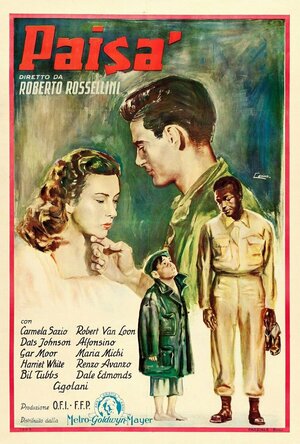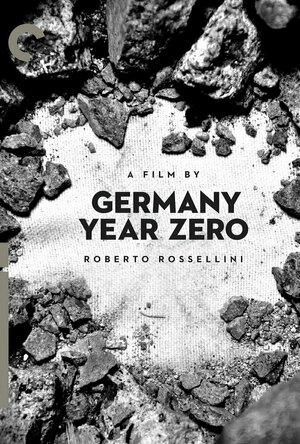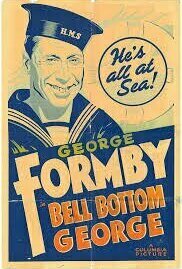Search
Search results
Lyndsey Gollogly (2893 KP) rated Charmed by the Past ( Spirits through time 1) in Books
Aug 13, 2023
109 of 235
Kindle
Charmed by the Past ( Spirits through time 1)
By Aimee Robinson
⭐️⭐️⭐️⭐️
She’s researching her family’s genealogy, but she never expected to become history herself.
Sarah Johansson is planning a family reunion when a photo of a little-known relative sparks her curiosity. A closer look at the post-World War I image causes her to tumble back in time to 1919 and into the hospital room of a brooding, wounded infantry corporal.
Jacob Bellamy is done with war and everything it involves. After risking his life in the trenches, he hopes to finally find peace by retiring to his family’s farm. But when the war’s toll strikes too close to home and lands him in a hospital bed, the last thing he’s prepared for is the beautiful, mysterious woman who barges into his room and demands help—or the long-dead feelings she stirs inside him.
As Sarah tries to unravel clues about her family’s history, her attraction toward the sexy Army veteran only grows. But her time in the past is growing short, and when an old wartime enemy of Jacob’s sets his sights on the blond beauty, Jacob will stop at nothing to keep her safe...even if it means losing her for good.
This was so freaking sweet just truly a lovely read I’m not one for big romance books but this had that time travelling edge. Oh I just fell in love with Jacob I want a Jacob!! Don’t think my hubby would be impressed though 😂. Definitely worth giving a go if you want that feel good happy ending.
Kindle
Charmed by the Past ( Spirits through time 1)
By Aimee Robinson
⭐️⭐️⭐️⭐️
She’s researching her family’s genealogy, but she never expected to become history herself.
Sarah Johansson is planning a family reunion when a photo of a little-known relative sparks her curiosity. A closer look at the post-World War I image causes her to tumble back in time to 1919 and into the hospital room of a brooding, wounded infantry corporal.
Jacob Bellamy is done with war and everything it involves. After risking his life in the trenches, he hopes to finally find peace by retiring to his family’s farm. But when the war’s toll strikes too close to home and lands him in a hospital bed, the last thing he’s prepared for is the beautiful, mysterious woman who barges into his room and demands help—or the long-dead feelings she stirs inside him.
As Sarah tries to unravel clues about her family’s history, her attraction toward the sexy Army veteran only grows. But her time in the past is growing short, and when an old wartime enemy of Jacob’s sets his sights on the blond beauty, Jacob will stop at nothing to keep her safe...even if it means losing her for good.
This was so freaking sweet just truly a lovely read I’m not one for big romance books but this had that time travelling edge. Oh I just fell in love with Jacob I want a Jacob!! Don’t think my hubby would be impressed though 😂. Definitely worth giving a go if you want that feel good happy ending.
My rating: 3.5
<i>I received this book for free through Goodreads First Reads.</i>
Nominated for an Oscar, BAFTA and Golden Globe, <i>Trumbo</i> is a recent film based on the original biography <i>Dalton Trumbo</i> written by Bruce Cook in 1977. Its adaptation to film provided the perfect opportunity to republish this extremely well researched book. With a forward written by John McNamara, the screenwriter of the motion picture, the story of Dalton Trumbo’s life is just as intriguing as it was almost forty years ago. But who is Trumbo?
If, like me, you have never heard of Trumbo or even the infamous “Hollywood Ten,” it may take a while for it to become clear as to why it was worth Cook’s time to produce a book about the man. Dalton Trumbo was a well-known screenwriter of films such as <i>Papillon, Lonely Are The Brave</i> and <i>Roman Holiday</i> as well as author of the novel <i>Johnny Got His Gun</i>. However these are not all he is famous for. During his life, Trumbo became a member of the Communist Party, which Hollywood branded as an Un-American Activity and thus blacklisted him, as well as other screenwriters, directors and actors. Ten of these men, Trumbo included, were imprisoned for their political beliefs – yet nothing prevented Trumbo from continuing his fairly successful career.
Interestingly, Cook begins the book with the final stages of Trumbo’s life. At time of writing Trumbo was still alive, although rather poorly. After contracting lung cancer, having a lung removed, and suffering a heart attack, Trumbo was a very sick man; nonetheless he was still enthusiastic about being interviewed and telling his personal story.
From his childhood, to his evening shifts at a bakery, Cook details Trumbo’s early life, emphasizing the hard upbringing he had before he found himself in the world of Hollywood. Although roughly 75% of the book focuses on Trumbo’s career, Cook highlights Trumbo as a family man, with both a wife and three children who he absolutely adores.
Cook constantly refers to the Hollywood Ten as a concept that the reader should already be familiar with. Granted, someone who picks up this book is more likely to do so having a prior interest in the central figure, and thus already know about his background; however those ignorant on the topic eventually gather a better understanding on the topic once reaching the relevant chapters. It also becomes clearer why Trumbo is worth reading/writing about – he may have been blacklisted, but he managed to break through all the barriers and reinstate his name and many others.
Reading this half a century after the event, it seems strange that Trumbo was imprisoned. He had not done anything intrinsically wrong, it was purely prejudice against his political beliefs that got him into the mess he found himself. But when you consider the events of the time: World War Two, the Cold War, the Korean War, and Vietnam; it is understandable why many feared those who claimed to be Communists.
Cook’s narrative does not flow as a story, and much of it is broken up with quotes from various people he interviewed. The timeline jumps about between past and present (1970s), which occasionally gets a bit confusing. A large part of the book is spent analyzing many of Trumbo’s works – both for screen and written formats – which, unless you have a particular interest, can be a little tedious.
It has got to be said that Bruce Cook was an exemplary writer with a great eye for detail. He did not jump to conclusions or only talk about things from his point of view. Instead he interviewed, what seems like, everyone who ever met Trumbo, and based his writing on fact backed up with numerous quotes and citations.
This edition of <i>Trumbo</i> contains a selection of photographs taken on the set of the movie. Disappointingly it does not contain any of Trumbo himself – you would think that some photos could have been tracked down!
<i>Trumbo</i> is not a book that will interest everyone. Most people today – particularly in England – will probably be unaware of who Dalton Trumbo was, and thus would only seek out this publication due to a fascination with film production. I have not seen the film, but after reading this and discovering how books go from novels, to screenplays to moving image, it would be interesting to find out which parts of Trumbo’s life made it onto the big screen.
<i>I received this book for free through Goodreads First Reads.</i>
Nominated for an Oscar, BAFTA and Golden Globe, <i>Trumbo</i> is a recent film based on the original biography <i>Dalton Trumbo</i> written by Bruce Cook in 1977. Its adaptation to film provided the perfect opportunity to republish this extremely well researched book. With a forward written by John McNamara, the screenwriter of the motion picture, the story of Dalton Trumbo’s life is just as intriguing as it was almost forty years ago. But who is Trumbo?
If, like me, you have never heard of Trumbo or even the infamous “Hollywood Ten,” it may take a while for it to become clear as to why it was worth Cook’s time to produce a book about the man. Dalton Trumbo was a well-known screenwriter of films such as <i>Papillon, Lonely Are The Brave</i> and <i>Roman Holiday</i> as well as author of the novel <i>Johnny Got His Gun</i>. However these are not all he is famous for. During his life, Trumbo became a member of the Communist Party, which Hollywood branded as an Un-American Activity and thus blacklisted him, as well as other screenwriters, directors and actors. Ten of these men, Trumbo included, were imprisoned for their political beliefs – yet nothing prevented Trumbo from continuing his fairly successful career.
Interestingly, Cook begins the book with the final stages of Trumbo’s life. At time of writing Trumbo was still alive, although rather poorly. After contracting lung cancer, having a lung removed, and suffering a heart attack, Trumbo was a very sick man; nonetheless he was still enthusiastic about being interviewed and telling his personal story.
From his childhood, to his evening shifts at a bakery, Cook details Trumbo’s early life, emphasizing the hard upbringing he had before he found himself in the world of Hollywood. Although roughly 75% of the book focuses on Trumbo’s career, Cook highlights Trumbo as a family man, with both a wife and three children who he absolutely adores.
Cook constantly refers to the Hollywood Ten as a concept that the reader should already be familiar with. Granted, someone who picks up this book is more likely to do so having a prior interest in the central figure, and thus already know about his background; however those ignorant on the topic eventually gather a better understanding on the topic once reaching the relevant chapters. It also becomes clearer why Trumbo is worth reading/writing about – he may have been blacklisted, but he managed to break through all the barriers and reinstate his name and many others.
Reading this half a century after the event, it seems strange that Trumbo was imprisoned. He had not done anything intrinsically wrong, it was purely prejudice against his political beliefs that got him into the mess he found himself. But when you consider the events of the time: World War Two, the Cold War, the Korean War, and Vietnam; it is understandable why many feared those who claimed to be Communists.
Cook’s narrative does not flow as a story, and much of it is broken up with quotes from various people he interviewed. The timeline jumps about between past and present (1970s), which occasionally gets a bit confusing. A large part of the book is spent analyzing many of Trumbo’s works – both for screen and written formats – which, unless you have a particular interest, can be a little tedious.
It has got to be said that Bruce Cook was an exemplary writer with a great eye for detail. He did not jump to conclusions or only talk about things from his point of view. Instead he interviewed, what seems like, everyone who ever met Trumbo, and based his writing on fact backed up with numerous quotes and citations.
This edition of <i>Trumbo</i> contains a selection of photographs taken on the set of the movie. Disappointingly it does not contain any of Trumbo himself – you would think that some photos could have been tracked down!
<i>Trumbo</i> is not a book that will interest everyone. Most people today – particularly in England – will probably be unaware of who Dalton Trumbo was, and thus would only seek out this publication due to a fascination with film production. I have not seen the film, but after reading this and discovering how books go from novels, to screenplays to moving image, it would be interesting to find out which parts of Trumbo’s life made it onto the big screen.
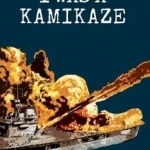
Eyewitness Accounts I Was a Kamikaze
Book
Ryuji Nagatsuka did not know, when he made an application to become a pilot in October 1943, that by...
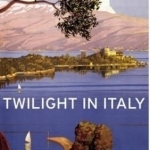
Twilight in Italy
Book
In 1912, a young D.H. Lawrence left England for the first time and travelled to northern Italy. He...
John Bailey recommended Rome, Open City (1945) in Movies (curated)
John Bailey recommended Paisan (Paisà) (1948) in Movies (curated)
John Bailey recommended Germany Year Zero (1948) in Movies (curated)
Awix (3310 KP) rated Bell-Bottom George (1943) in Movies
May 17, 2020
George Formby vehicle in need of a tune-up. George, who as ever is playing a good-hearted Lancastrian simpleton ukulele master, joins the navy by accident, stumbles across a nest of Nazi spies, and saves a new submarine from being sunk, while getting the girl and doing a few comic songs along the way.
These days I suspect most people only watch George Formby films for the one-liners and the musical numbers - but the script here is thin, and Formby doesn't play the uke in half the songs (which mostly aren't that good either). All the usual elements turn up - chases, slapstick, unlikely romance, etc - but the movie feels padded even at only 97 minutes long and it's just not consistently funny enough. Still, the second world war saw some terrible disasters, and this is far from the worst of them.
These days I suspect most people only watch George Formby films for the one-liners and the musical numbers - but the script here is thin, and Formby doesn't play the uke in half the songs (which mostly aren't that good either). All the usual elements turn up - chases, slapstick, unlikely romance, etc - but the movie feels padded even at only 97 minutes long and it's just not consistently funny enough. Still, the second world war saw some terrible disasters, and this is far from the worst of them.
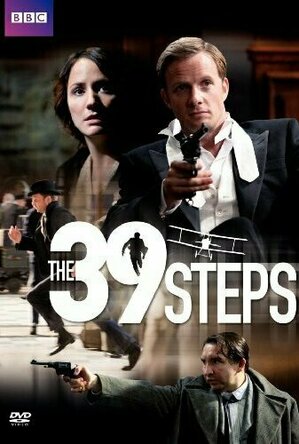
The 39 Steps (2008)
Movie
Richard Hannay, a mining engineer on holiday from the African colonies, finds London socialite life...
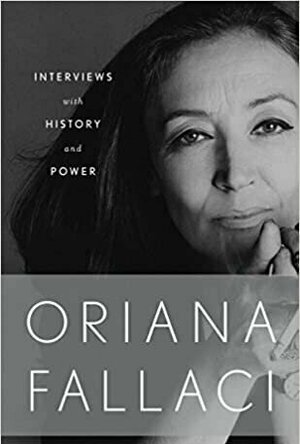
Interview with History
Book
A posthumous compilation of this award-winning and best-selling writer and journalist's seminal,...

